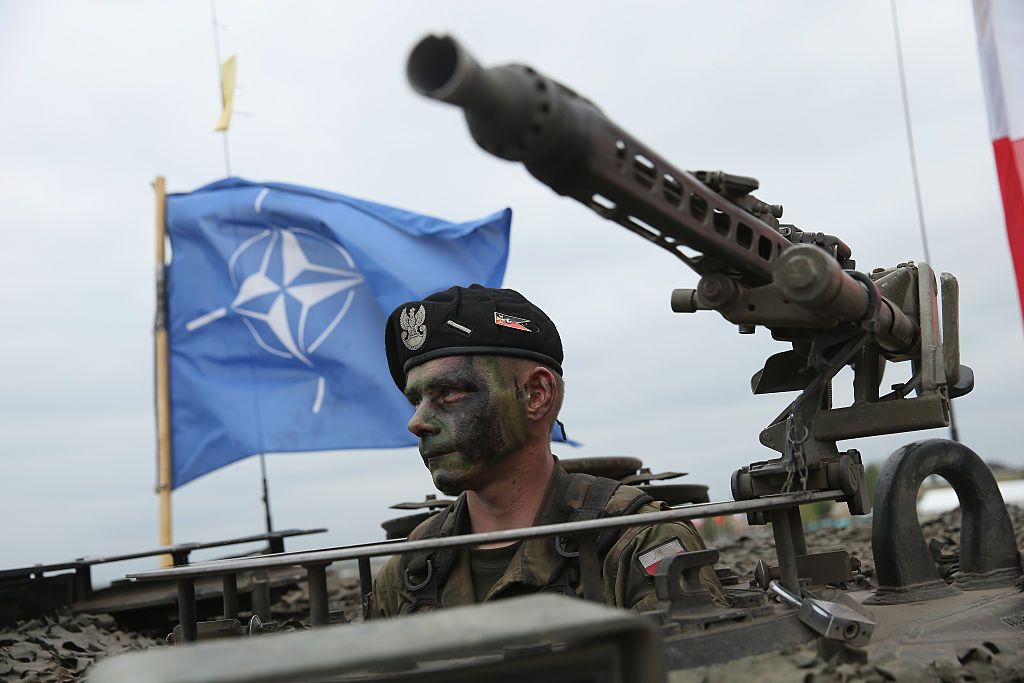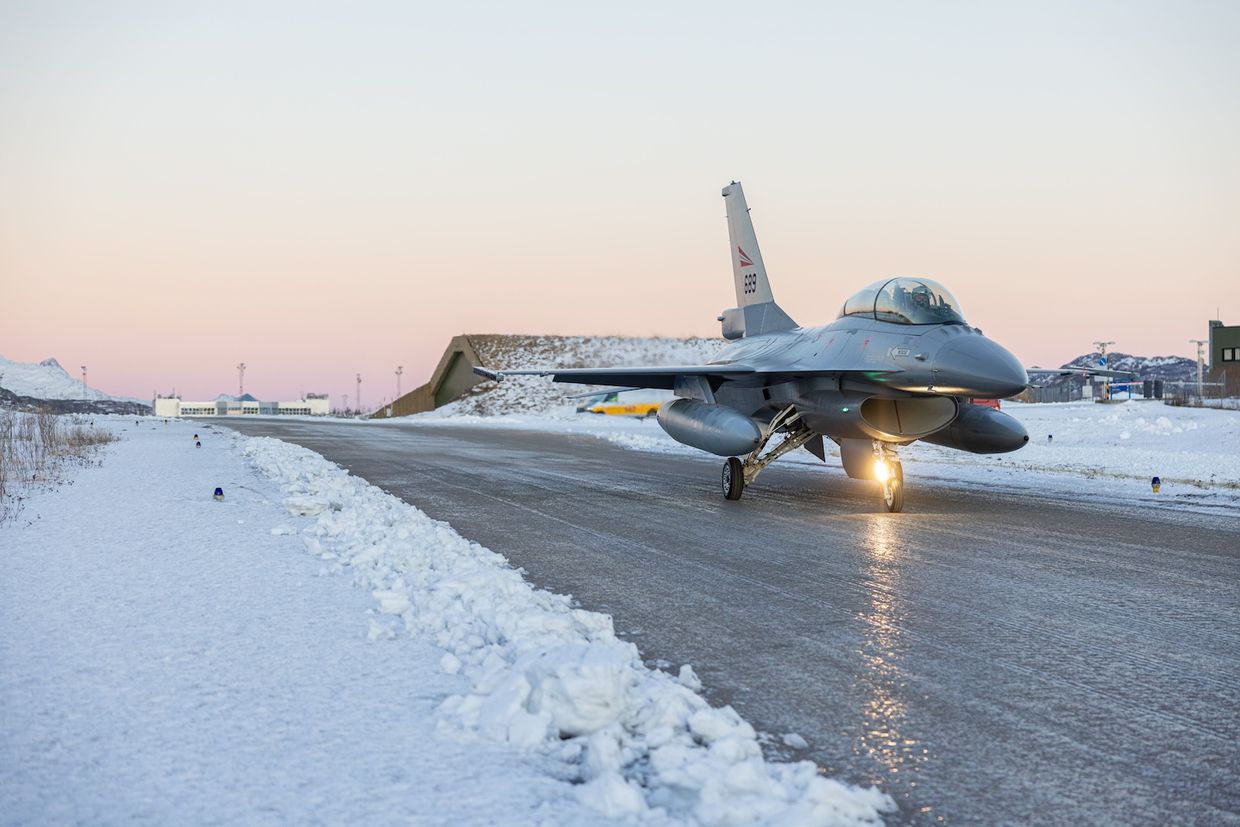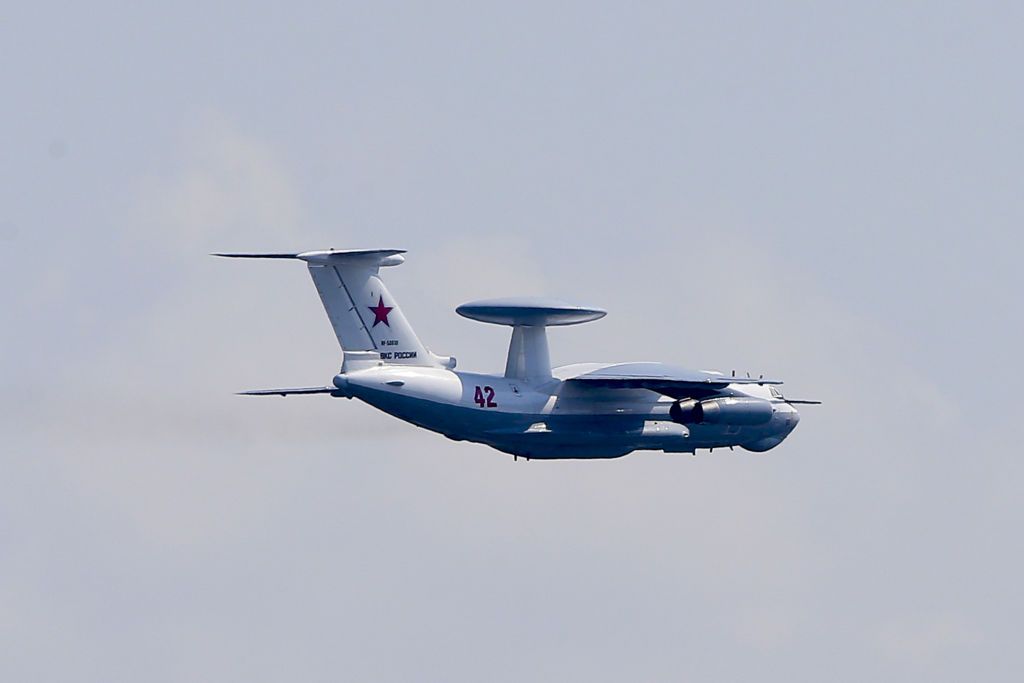Ukraine war latest: Ukraine reportedly hits oil depot near Saint Petersburg with homegrown drone

Key developments on Jan. 18:
- Ukrainian drone reportedly hits oil depot near Russia’s Saint Petersburg, minister says it was homegrown
- WSJ: Biden makes concessions to Republicans on immigration to secure Ukraine aid
- Minister: France to deliver more Caesar howitzers, guided bombs to Ukraine
- Zelensky: All Russian missiles have dozens of critical foreign-made parts
- Military intelligence: Russia has modernized its Kh-101 missiles
Ukraine's military intelligence agency (HUR) hit an oil depot near the Russian city of Saint Petersburg in an overnight drone attack, Ukrainska Pravda reported on Jan. 18, citing an unnamed source in intelligence.
Ukraine’s Strategic Industries Minister Oleksandr Kamyshin said later the same day that the drone had been produced in Ukraine, a rare public acknowledgment of an attack on Russian soil by a Ukrainian official.
"We're able to make something that costs $350 apiece and something that would fly tonight to Saint Petersburg… Yes, we hit the target tonight, and this thing flew exactly 1,250 kilometers (to do that)," Kamyshin said at a public discussion in Davos.
The Russian Defense Ministry claimed that a Ukrainian drone was intercepted over Leningrad Oblast, during the early hours of Jan. 18.
Multiple Russian Telegram channels reported that one drone was shot down over the Saint Petersburg Oil Terminal on the Gulf of Finland. The drone allegedly exploded on impact, causing a fire to break out.
"This is a Defense Intelligence operation involving modern Ukrainian assets. Data collection continues, and there are confirmed strikes on targets," a source told Ukrainska Pravda.
The drone strike demonstrates that "military facilities in Saint Petersburg and Leningrad Oblast are within reach of Ukrainian forces," according to the source.
The attack was "not the first time" Ukrainian drones had attacked Leningrad Oblast, "but there are differences this time, and the enemy has felt them," the source said.
Earlier in January, several drones reportedly struck an oil depot and energy provider in Russia's Oryol Oblast, and explosions were reported at a railway track by an oil depot on the outskirts of Nizhny Tagil, a city near the Urals.
WSJ: Biden makes concessions to Republicans on immigration to secure Ukraine aid
U.S. President Joe Biden made concessions on immigration policy to Senate Republicans to deflect criticism and secure backing for Ukraine aid, the Wall Street Journal (WSJ) reported on Jan. 18.
Since autumn 2023, Congress has disagreed on a supplemental funding bill that included $61 billion in aid for Ukraine. Republicans in the U.S. Senate blocked an initiative in December, insisting that further military aid must include significant domestic border changes.
The funding faces even tougher opposition from House Republicans, who raised further demands, and some of them are against aid for Kyiv in principle. Biden met Congressional leaders on Jan. 17 to underscore the importance of continued funding for Ukraine.
An important factor for Biden is also likely a growing dissatisfaction among the voters with the administration's border policy. According to a CBS survey, 63% of Americans want a stricter approach toward immigration at the southern border.
As part of the border deal talks with the Republicans, the White House agreed to measures that would restrict the right of some migrants to claim asylum in the U.S., the WSJ wrote.
The president also recently signaled openness to changes to humanitarian parole, which allows entry to migrants who do not qualify for visas.
The Biden administration has reportedly drawn line on some issues like large-scale workplace raids or detaining migrant families at the border.
Washington signed the last U.S. $250 million aid package for Ukraine on Dec. 27, including ammunition for anti-aircraft warfare, multiple launch rocket systems, artillery, anti-tank mines, and other aid.
Minister: France to deliver more Caesar howitzers, guided bombs to Ukraine
French arms manufacturers will produce 78 Caesar howitzers by the beginning of 2025 to supply them to Ukraine, the country's Defense Minister Sebastien Lecornu said in an interview for Le Parisien published late on Jan. 17.
The news follows an announcement by French President Emmanuel Macron that France will send Ukraine 40 new long-range SCALP-EG missiles in addition to "hundreds of bombs."
Macron is also expected to sign a bilateral security agreement with Ukraine next month while in Kyiv.
According to Lecornu, in the coming weeks, France will deliver six Caesar howitzers, bought by Kyiv at its own expense, with Paris able to produce 75 more by 2025. The approximate price of one of the artillery pieces is up to 4 million euros ($4.31 million).
“There are 49 Caesar howitzers in Ukraine so far that led to tactical success. We aimed to produce 78 Caesar howitzers in 2024, encouraging Europeans and our allies to join financing,” he said.
The Defense Minister also said that France will be supplying Ukraine with 50 AASM high-precision air-dropped bombs per month until the end of the year. The munitions, which will see service in Ukraine for the first time, have been adapted to be deployed from Ukrainian Soviet-era combat aircraft.
Paris will also increase the delivery of artillery shells to up to 3,000 per month in February, Lecornu said. Earlier, France had been providing Ukraine with 2,000 artillery shells per month.
Zelensky: All Russian missiles have dozens of critical foreign-made parts
Russia uses dozens of critical components from abroad to produce all its missiles, President Volodymyr Zelensky said on Jan. 18, referring to a report by Foreign Intelligence Service Chief Oleksandr Lytvynenko.
Despite extensive Western sanctions aimed at cutting off supply lines, Russia continues to obtain sanctioned goods, such as microchips, via third-party countries, fueling its war machine.
However, Moscow lacks some modern weapon parts like modern optics and electronics due to restrictions, Ukraine's military intelligence agency (HUR) said.
According to Zelensky, there are “clear facts” that many of the parts in Russian missiles are made by “companies from the free world.” He wants allies to respond more actively to Moscow’s attempts to circumvent sanctions and prevent it from producing weapons.
Ukraine's National Agency on Corruption Prevention (NAZK) identified around 2,500 foreign components in Russian weaponry, mostly from U.S. producers who do not sell their products to Russia directly.
“So blocking the ways Russia circumvents sanctions is blocking terror. I am grateful to all partners who understand this and to everyone in the world who helps us in this work,” the president said.
Kyiv's allies have sought to crack down on the Kremlin's ability to circumvent their sanctions. The EU's latest sanction package included a ban on re-exporting sensitive goods to Russia for third-country entities.

Military intelligence: Russia has modernized its Kh-101 missiles
Russia’s military has modernized its Kh-101 cruise missiles, said Vadym Skibitskyi, a spokesperson for Ukraine's military intelligence agency (HUR), adding that these missiles “are completely different from those used in 2022.”
“This missile already has an electronic warfare system, protection, thermal traps, among other things,” Skibitskyi said during a public discussion in Davos.
Kh-101 is a strategic air-launched cruise missile that can reach targets up to 5,000 kilometers away and is used by Russian forces to attack Ukrainian cities and civilian infrastructure.
Skibitskyi emphasized that Russian forces “are learning fast" and rejected the possibility of Ukraine’s transitioning to a "deaf" defense.
"We have to develop air defense, take care of the military production industry so that it gives results, and take, in particular, counteroffensive measures to prevent the loss of territories. The experience of 2023 showed us this," added Skibitskyi.
According to Prime Minister Denys Shmyhal, one of Ukraine's key goals for 2024 is to increase the defense industry production capacity six times.
















